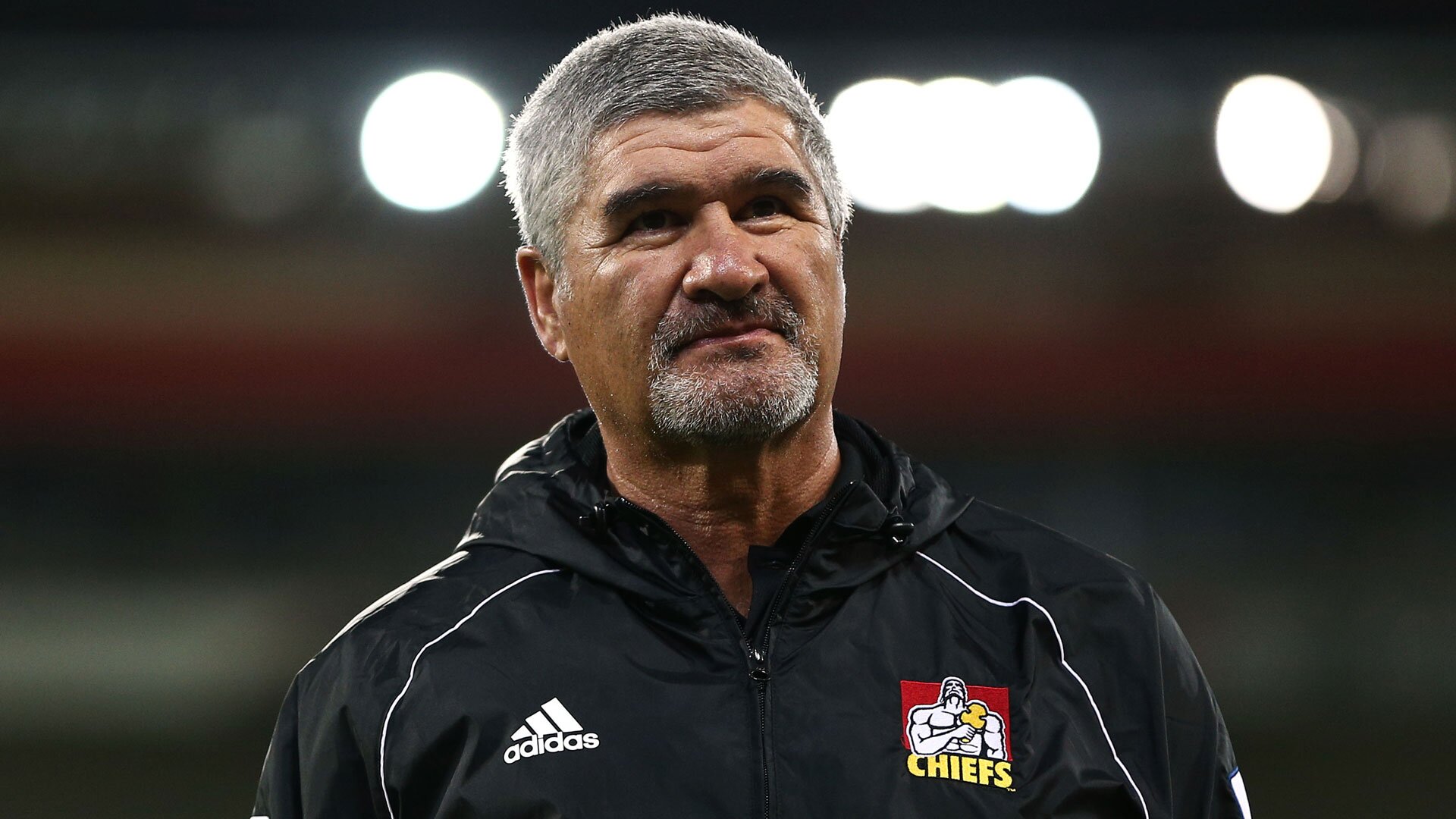Colin Cooper steps down as Chiefs head coach

Chiefs boss Colin Cooper will step down from the Super Rugby club this year, with his next priority to spend time with his family.
Cooper, who has coached the Chiefs for the past two seasons, opted not to see out the last of a three-year term and sought an early release. Club CEO Michael Collins said he and Cooper had been in discussions for several weeks, which meant the Chiefs could begin their recruitment process discreetly without interrupting the 2019 campaign.
“We are grateful to Colin for his outstanding leadership and coaching at the Chiefs. He is a proud man who set an incredibly high bar in terms of personal standards and behaviour, both on and off the field. We are really proud of the culture he has fostered inside our club and team environment. He can be proud of what he has achieved.
New Zealand Rugby CEO Steve Tew acknowledged Cooper’s commitment and contribution. “Coolin is a remarkable individual with great presence and mana. We know him to have a special talent in communicating with young men and working to bring the best out of those in his charge and to help grow outstanding individuals on and off the field.
“We appreciate that he will have some decisions to make and while he will have choices in front of him, we hope his special abilities won’t be lost to New Zealand rugby. Next year is a post-World Cup year when there is a lot of player movement within Super Rugby and clubs are beginning the next four-year cycle.
ANNOUNCEMENT | Colin Cooper steps down as Gallagher Chiefs head coach.
A top man & true legend of NZ rugby will be missed. Thanks for everything Coops! ?
FULL STORY: https://t.co/wWBnuO2Qh8 pic.twitter.com/6rKRyFWjUr
— Gallagher Chiefs (@ChiefsRugby) June 27, 2019
“Taking that into consideration, both Colin and the club have spoken at length over several weeks and agree that the time is right for a new coach to take the Chiefs into 2020 and beyond. Being an ultimate professional and team man, Colin’s early decision was not made lightly by either him or the club, but it has allowed us some space to recruit and plan for a smooth and successful transition.
Under Cooper, the Chiefs reached the Super Rugby quarter-finals of the 2018 and 2019. Cooper said he was proud to have been part of the Chiefs, leading a “great group of young men”.
“I believe the team and the club are bigger than the individual and the club comes first. With next year the start of a new World Cup cycle, I believe it is the right time to step aside. There is a good crew of players and staff here who are committed to carrying the club forward,” he said.
https://www.instagram.com/p/BzDHOCvgWVT/
“Developing young players and coaches for the future of New Zealand rugby is something I’m very passionate about, and I’m proud and grateful to have been a part of that with the Chiefs. The Chiefs are well supported by fans and sponsors, and I would like to thank them for making me feel welcome and at home in Hamilton.”
Cooper has been coaching rugby professionally for more than 20 years. He took on the role of Chiefs head coach after eight successful seasons leading the Taranaki Mitre 10 Cup team, during which time he also coached the Maori All Blacks for five years. Previously he was the head coach of the Hurricanes for eight years.
He said he would now take a break to consider his future. “The role of the head coach has evolved so much over the past five or six years. My passion is ‘hands-on’ on-the-field coaching, but with bigger playing numbers and more staff involved these days, I’m getting taken further and further away from my passion. I will take some time out with my family and discuss our future.”
Jaguares v Chiefs | Super Rugby Quarter Final 2 Highlights
The @JaguaresARG have recorded their maiden Super Rugby finals win with a 21-16 Quarter-Finals win over @ChiefsRugby in Buenos Aires.#SuperRugby #JAGvCHI #SR19Finals pic.twitter.com/iltQUMQ9OE— Super Rugby Pacific (@SuperRugby) June 22, 2019
Chiefs co-captain Sam Cane said Cooper had been a great mentor. “Colin has a huge amount of mana and respect from the team. A number of us have played under his leadership for several years, some for even longer.
“He has been a great coach and mentor during his time at the Chiefs. His knowledge and experience have been hugely beneficial. He has been instrumental in developing some of our talented younger guys. He will be missed. We wish him all the best in his next venture.”
WATCH: Colin Cooper and CEO Michael Collins front up to the media after the head coach decided to step down from his role
















































































